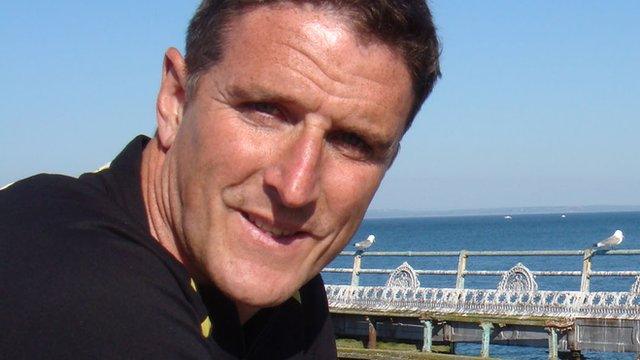Brexit chance to improve environment, NRW chief says
- Published
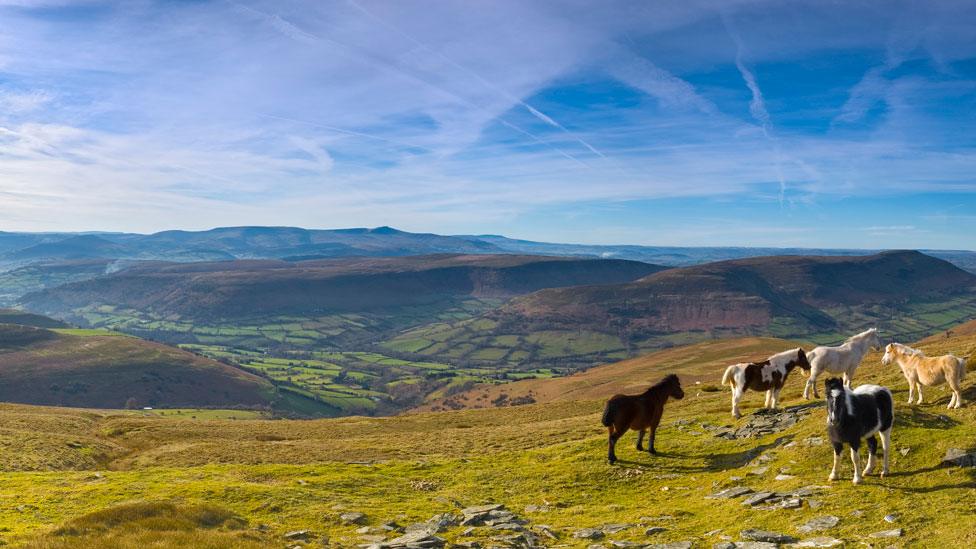
Brexit presents an opportunity to improve the way Wales' environment is looked after, according to the outgoing head of Natural Resources Wales.
Dr Emyr Roberts said the EU's impact had been "largely positive" but there was the "potential to do even better".
In a wide-ranging BBC Wales interview, he also defended his leadership of the environmental watchdog, which has faced a slew of difficult headlines.
He is set to retire in October after almost five years.
When it comes to environmental law, the EU has amassed more of it than anywhere else in the world.
In many cases NRW's staff are responsible for monitoring whether Wales is meeting European standards.
Those duties will change after Brexit as Welsh or British standards are developed, with potentially more responsibilities placed on the regulator, Dr Roberts predicted.
He said the EU's strict environmental regulations had led to "significant improvements", highlighting bathing water quality and reductions in industrial emissions.
"First of all it's very important that we do keep the current standards after Brexit - they have been successful," said Dr Roberts.
"But going forward there is the potential to do even better - and in particular if we can bring together agricultural policy and environmental policy.
"I think we can bring Welsh solutions to the table where in the past we've been quite restricted."
He also said he thought the public in general "undervalue the environment and the benefits it can bring".
Dr Roberts has been chief executive of NRW since its formation in 2013 when three former quangos - the Environment Agency, Countryside Council for Wales and Forestry Commission Wales - were merged.
It is the largest government-sponsored body in Wales, employing 1,900 staff across the country.
The aim was to manage the environment in a more joined-up way while keeping a distance from the Welsh Government.
However a year in, wildlife presenter and naturalist Iolo Williams s branded it a "disaster for conservation", with NRW's independence called into question over support for a motor racing track near Ebbw Vale.
It became evident that merging different organisations was proving to be a huge challenge. Leaked staff surveys came under the spotlight and claims of morale problems were made.
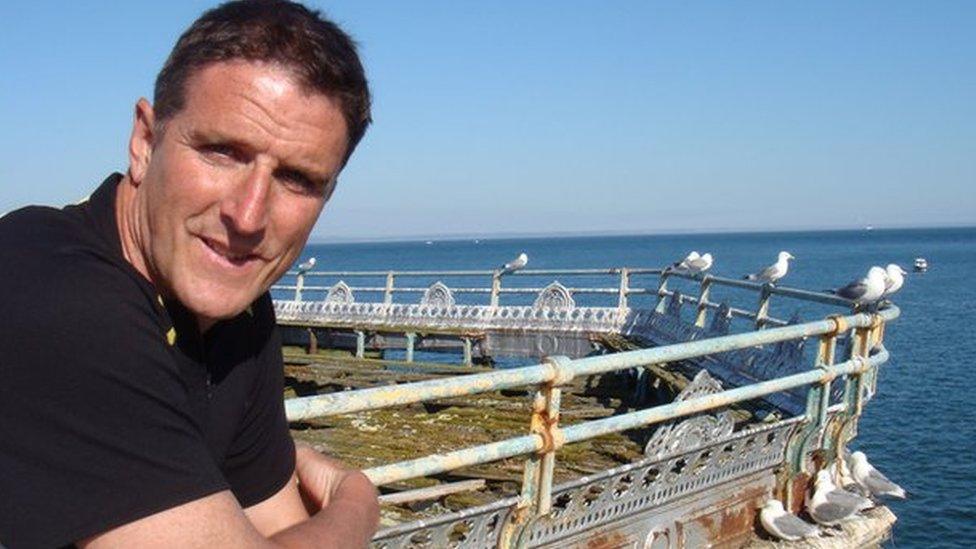
Iolo Williams said he though NRales is too close to the assembly to be independent
Most recently a row over a £39m timber deal that was not put out to tender prompted criticism from the Auditor General for Wales and an investigation by the assembly's public accounts committee.
The timber industry complained of "an extremely worrying loss of forestry expertise" within the organisation, while fishing and river groups also attacked NRW, branding it "no longer fit for purpose".
In May Dr Roberts announced he would retire, saying it was time to "pass the reins onto someone else".
Asked about the regular criticism, Dr Roberts said he felt it reflected the passion people felt towards the Welsh environment.
"The one thing I have learnt in this job is that you can't please everybody anytime," he said.
"But many of those comments come from a particular angle - whether it's fishing or conservation. Our job is to join all that up and make the best solutions.
"Sometimes you have to make compromises. We have to take things in the round, base it on evidence and come to the right decision for the environment and the wider society as well."
However Dr Roberts acknowledged that the damage done to NRW's reputation by the constant criticism had taken its toll on staff morale.
He said the 2016 staff survey, which showed fewer than half of employees felt valued and only 11% had faith in senior managers to make the right call, had been "very, very useful".
"We had a very clear picture of what staff wanted - they wanted to be more involved in the decisions being taken around them, they wanted to be communicated with better, they wanted to be valued more," he said.
"And since then we've been working very hard to build that up - so we're starting to turn that around."
In what could be construed as a warning to Welsh Government ministers, Dr Roberts suggested the services NRW provide could suffer if it is asked to make further savings.
Its budget has been cut by 15% in real terms over the past four years.
Dr Emyr Roberts said we all had a part to play in valuing the environment in Wales
During the same period, NRW has been issued with further statutory duties as a result of new laws such as the Environment Act.
"I think we've been able to manage the situation well, but I think there comes a point where you can't cut any further without impacting on those services."
Diane McCrea, NRW chairwoman, has thanked Dr Roberts for his "huge commitment and hard work in leading Natural Resources Wales".
Environment Secretary Lesley Griffiths added: "Bringing together three organisations and creating an effective regulator and delivery body has been no mean feat."
- Published28 April 2017
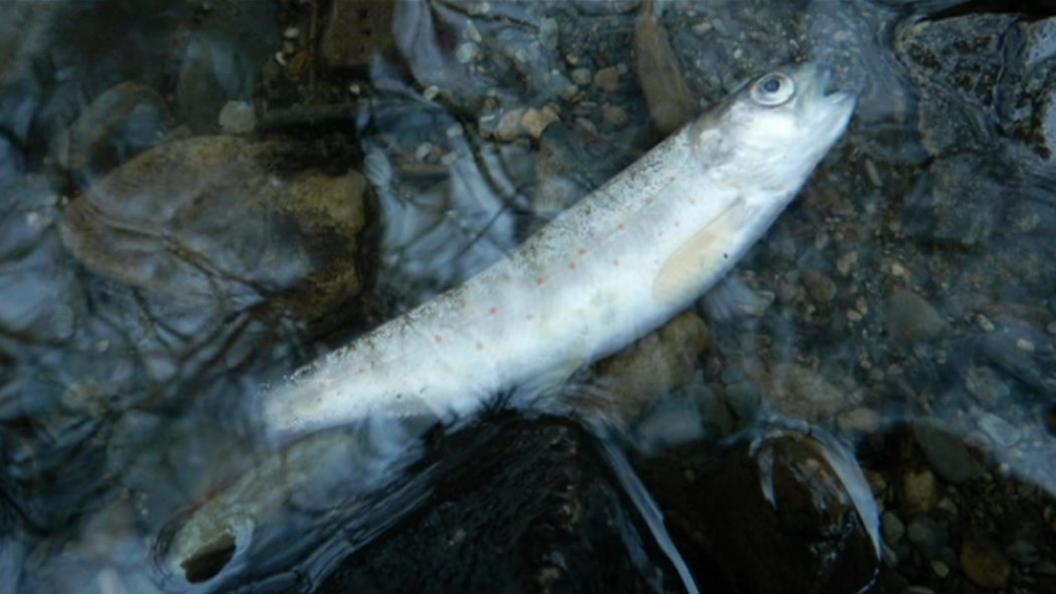
- Published30 May 2017
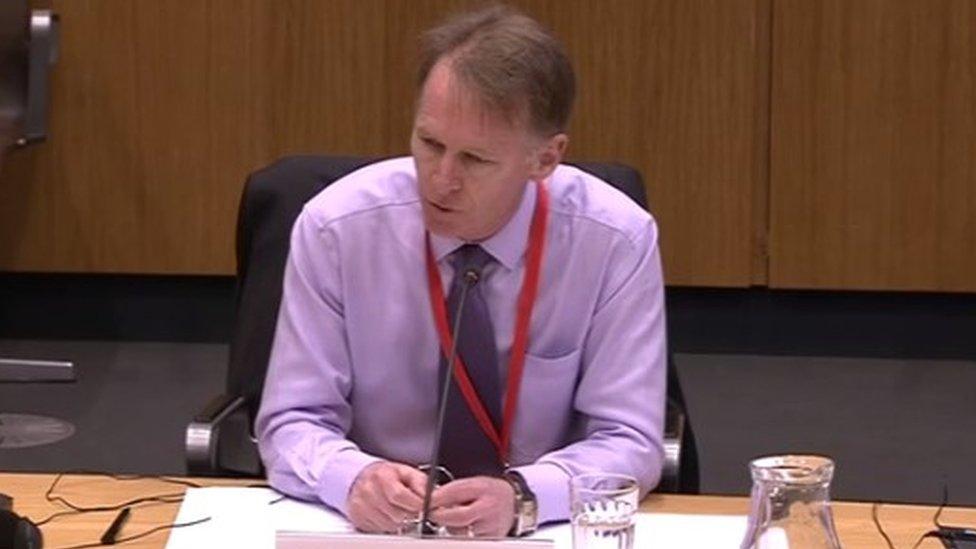
- Published15 June 2016
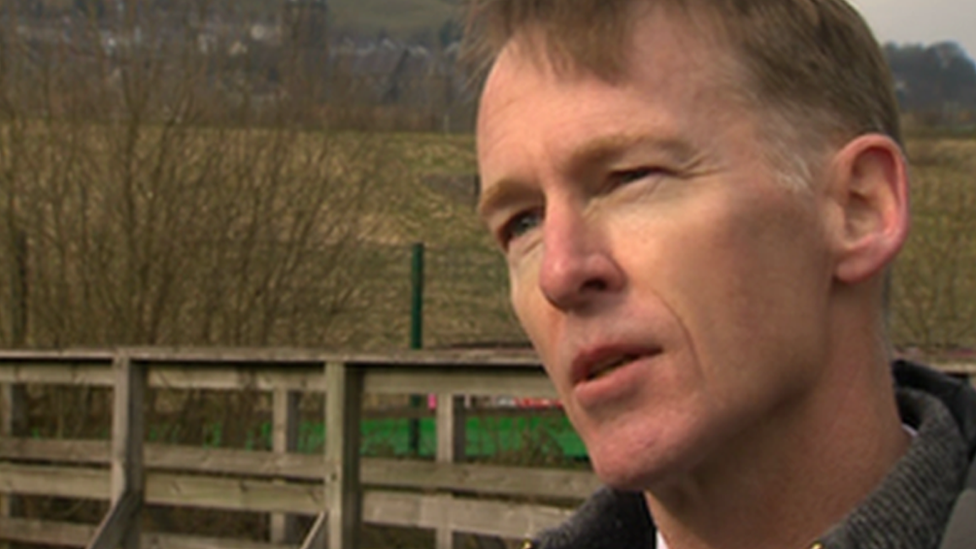
- Published1 April 2014
